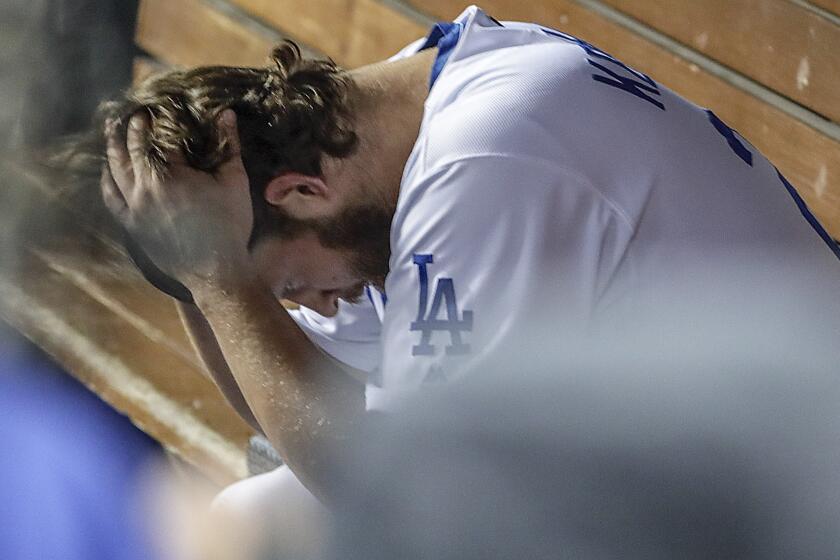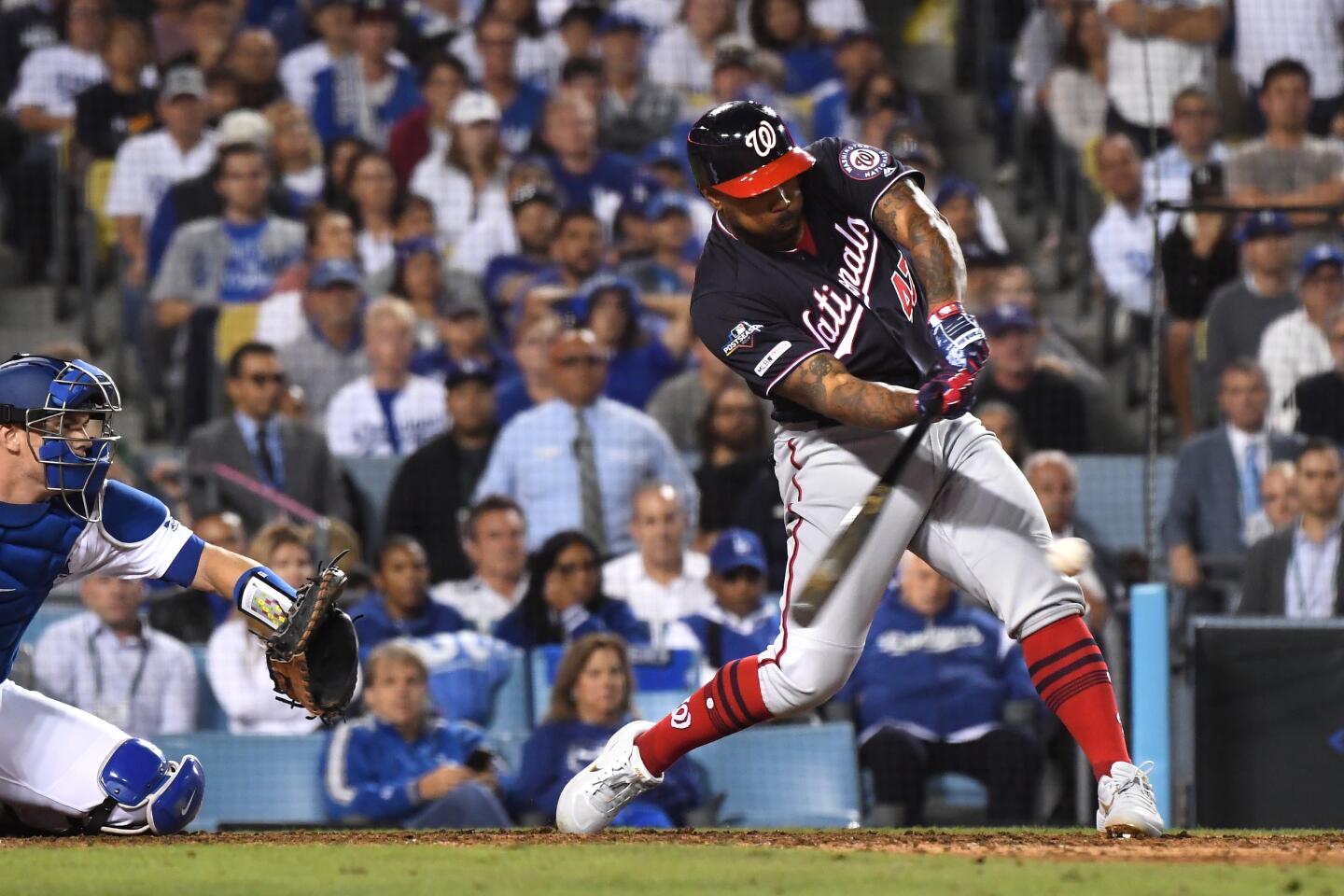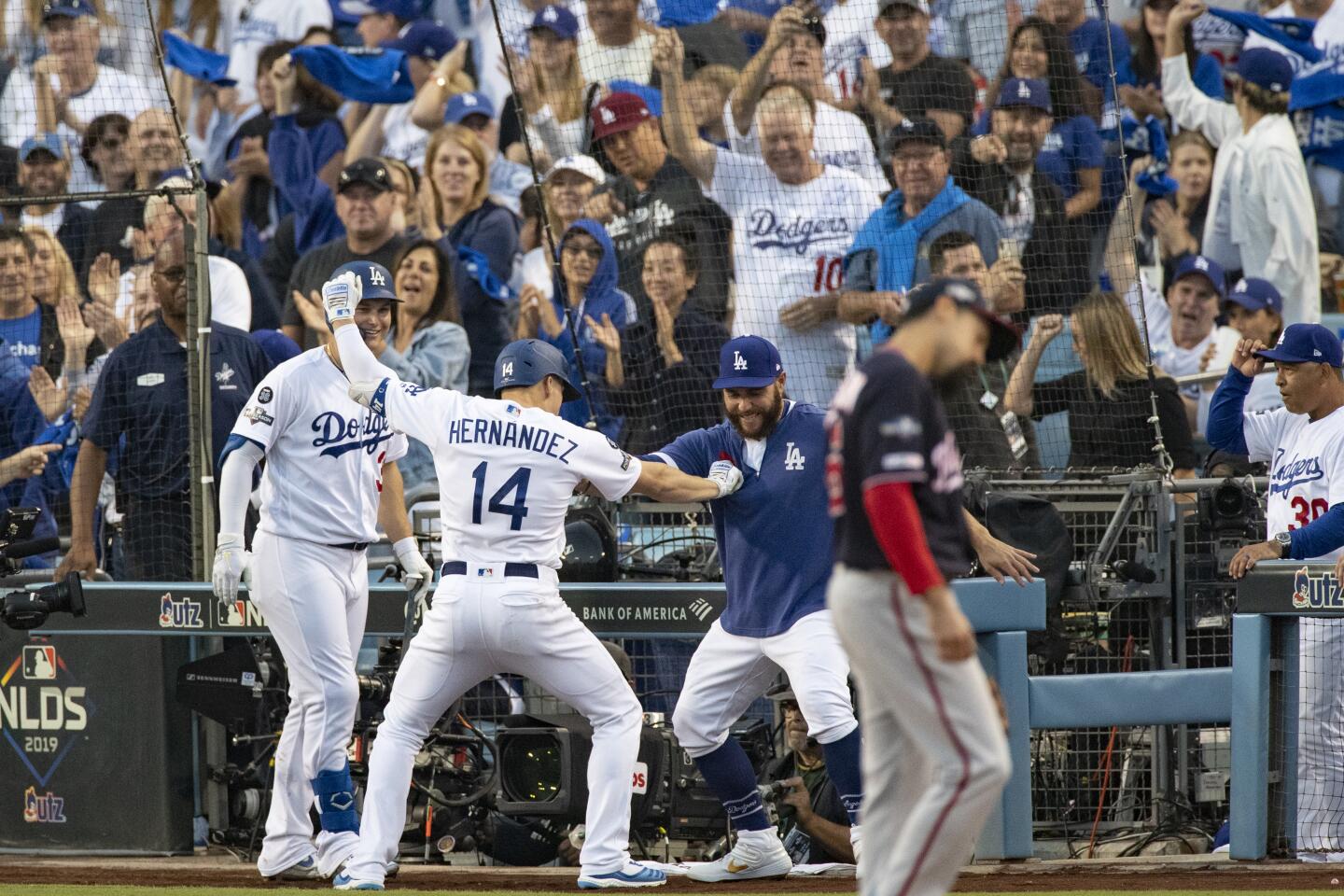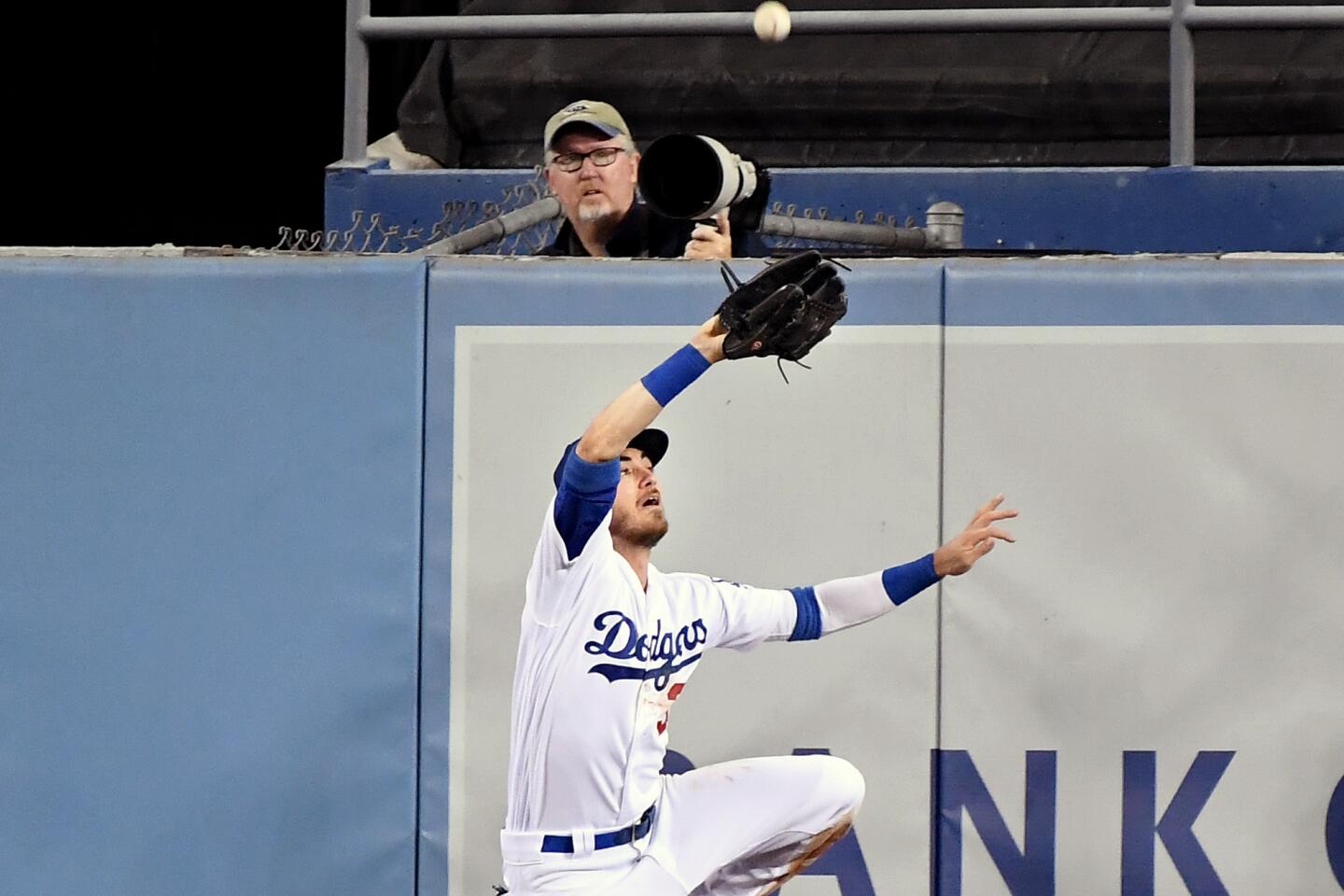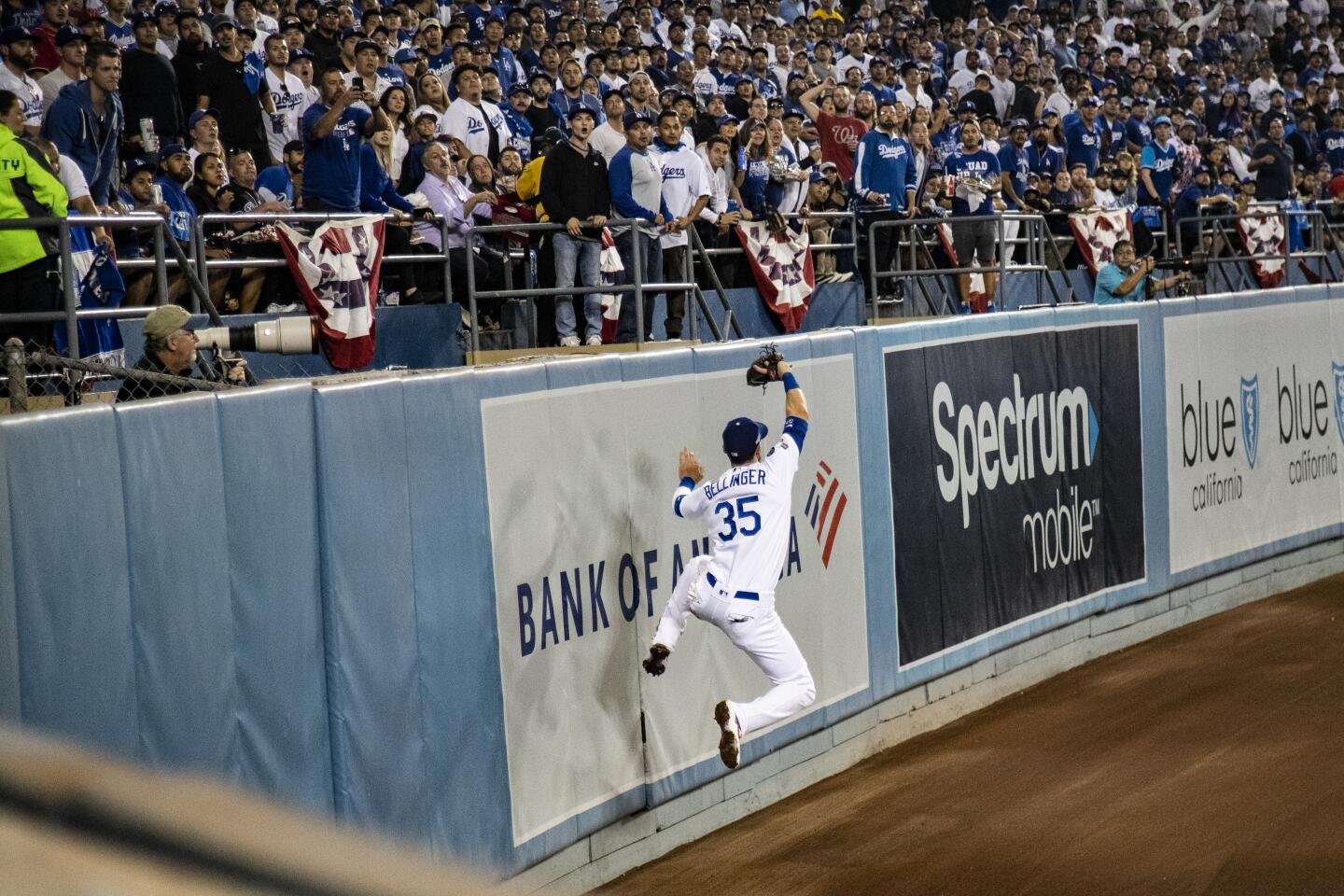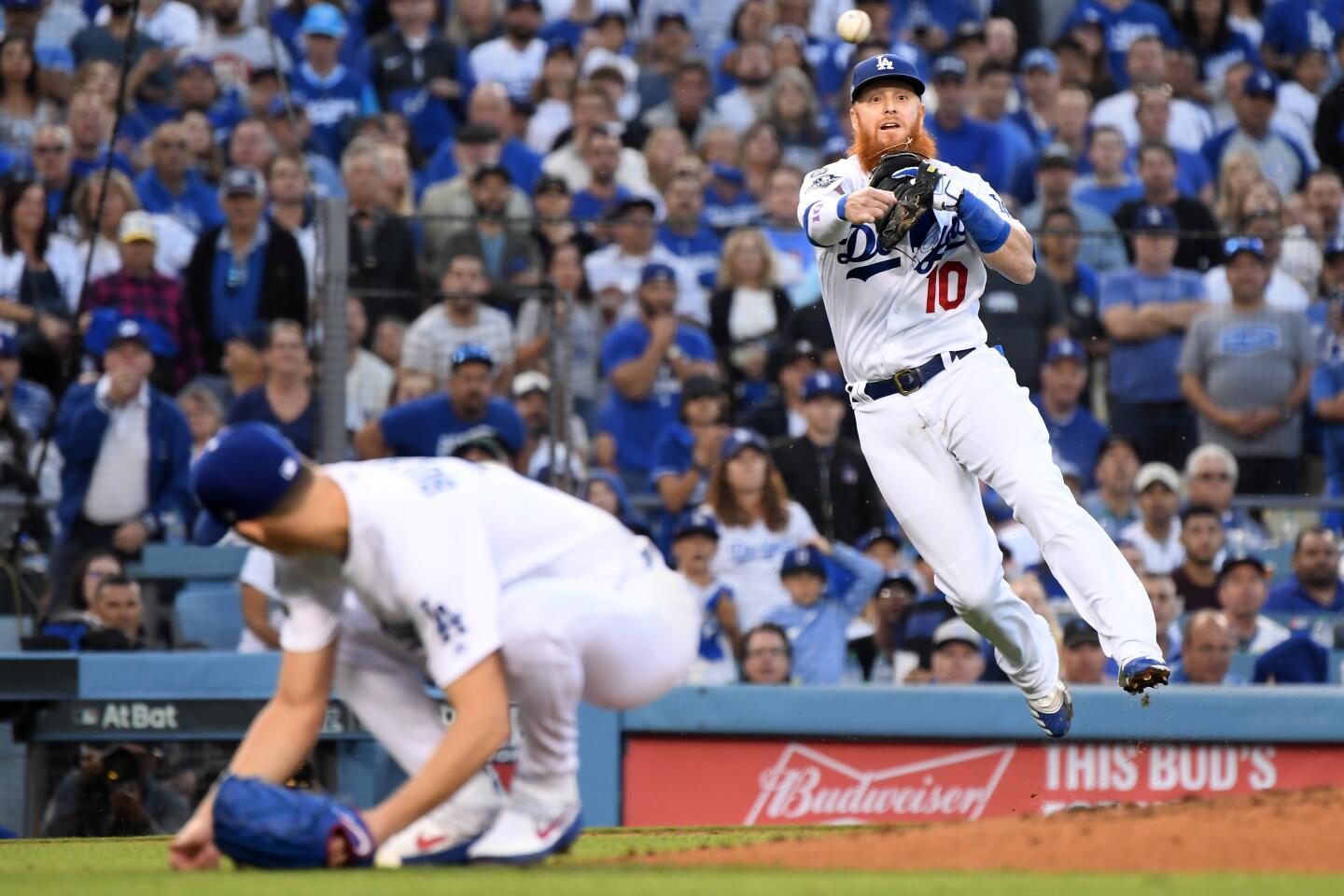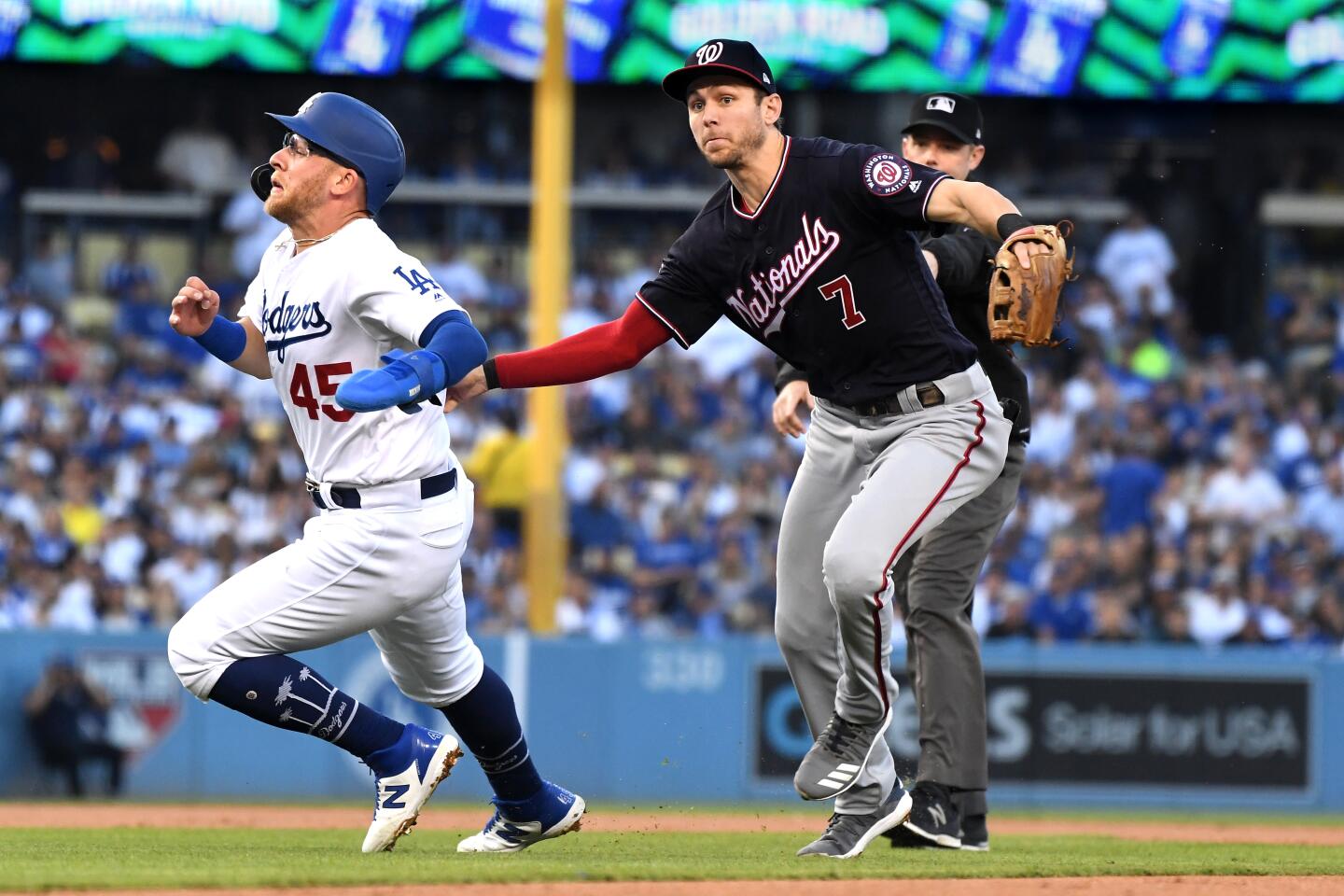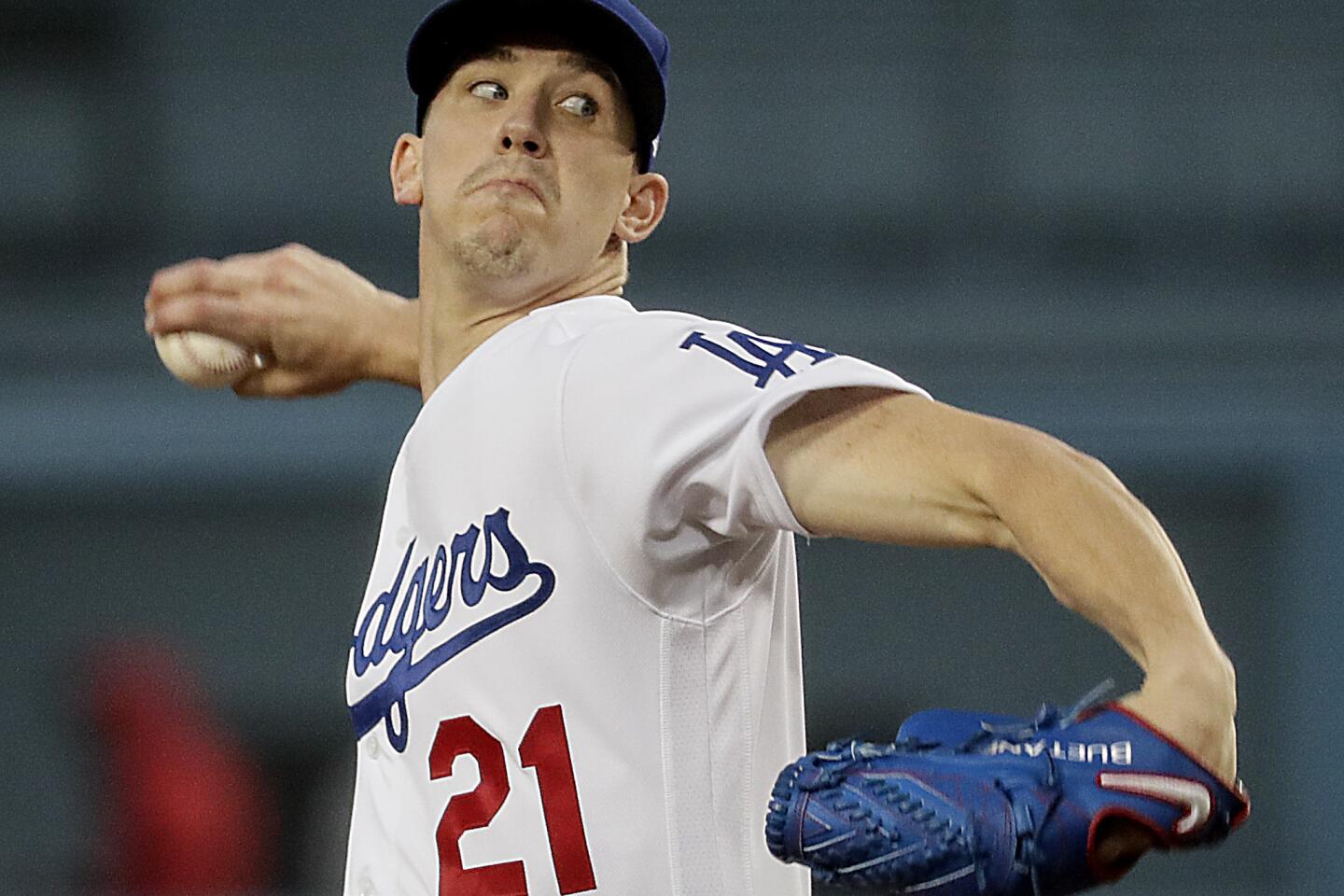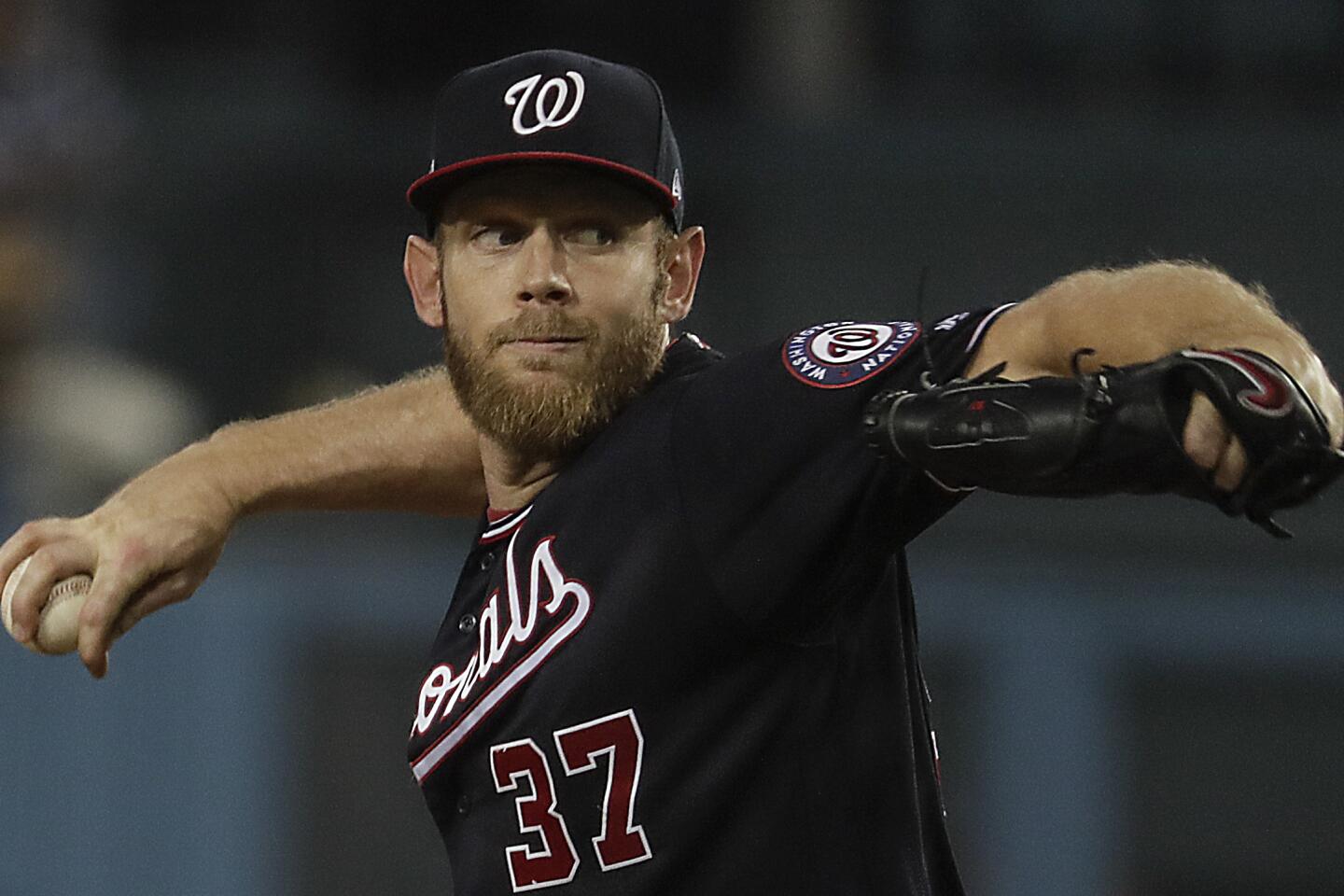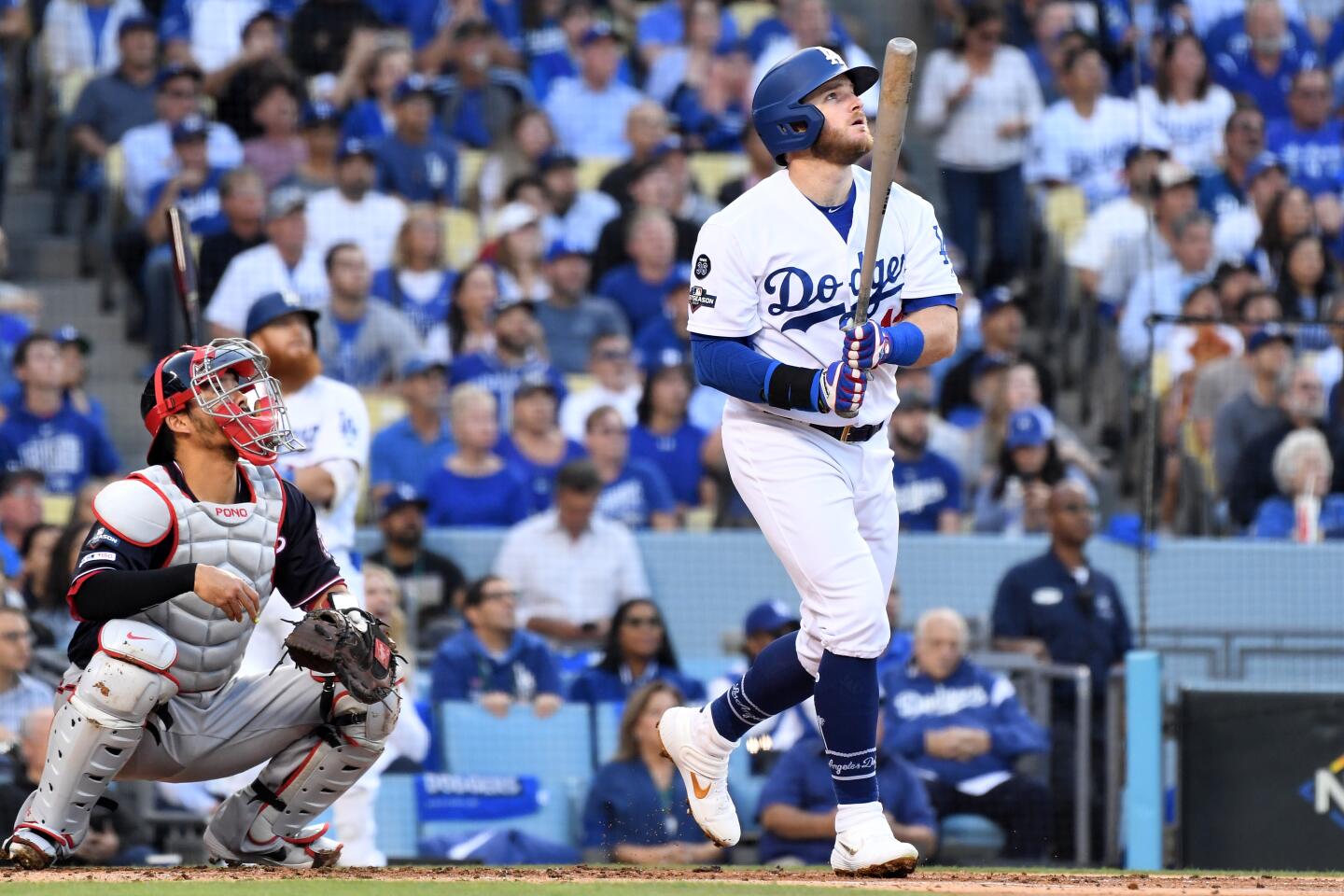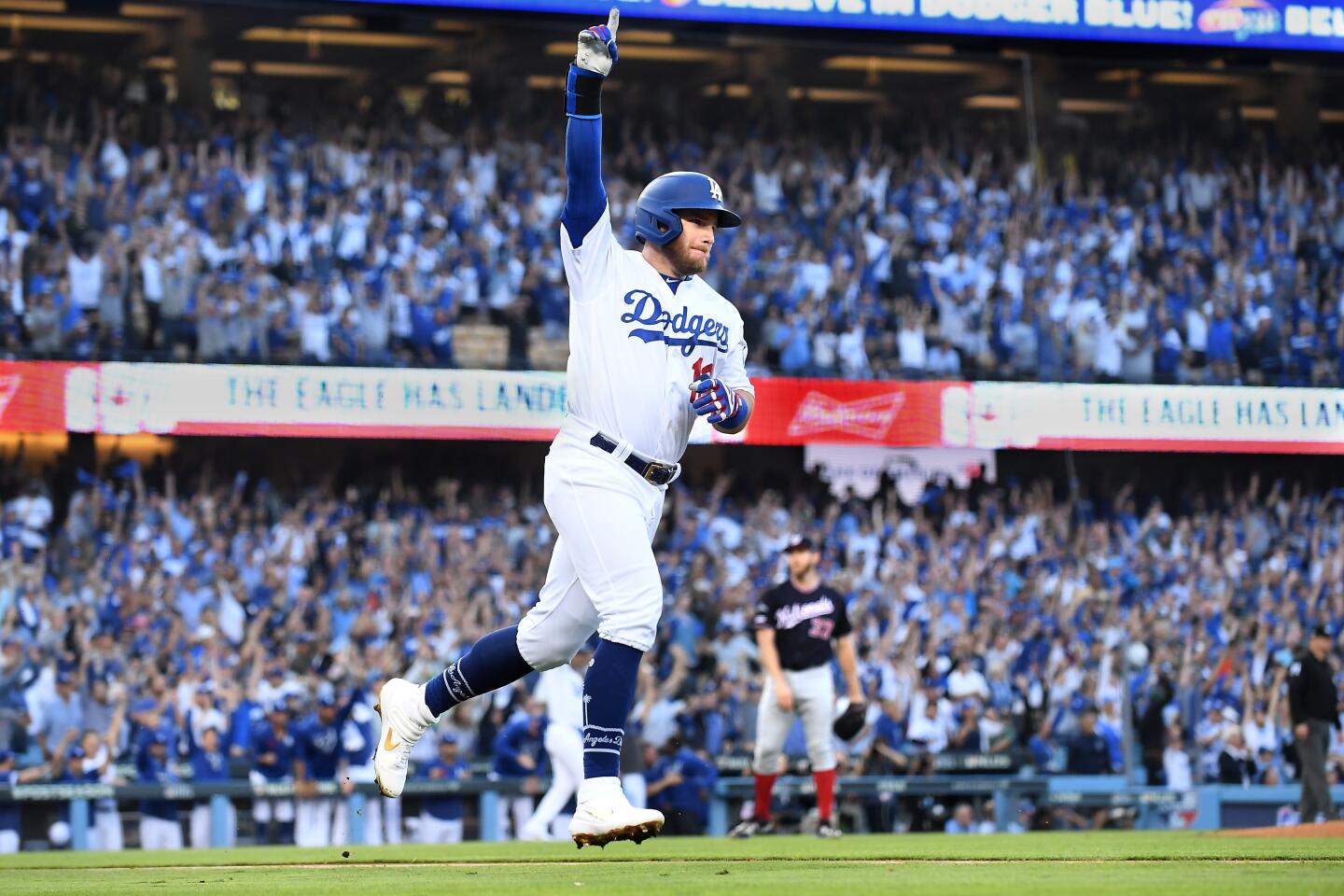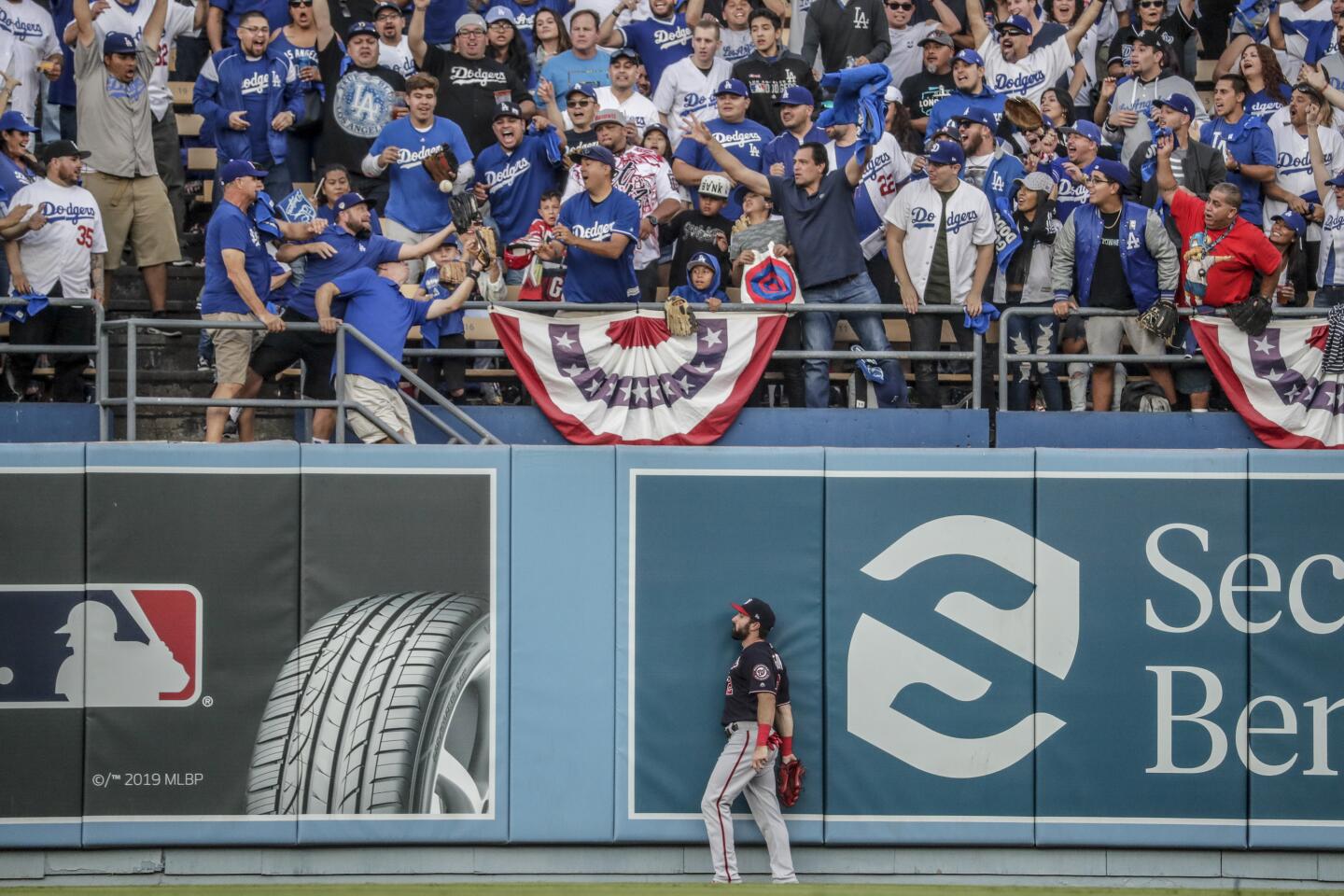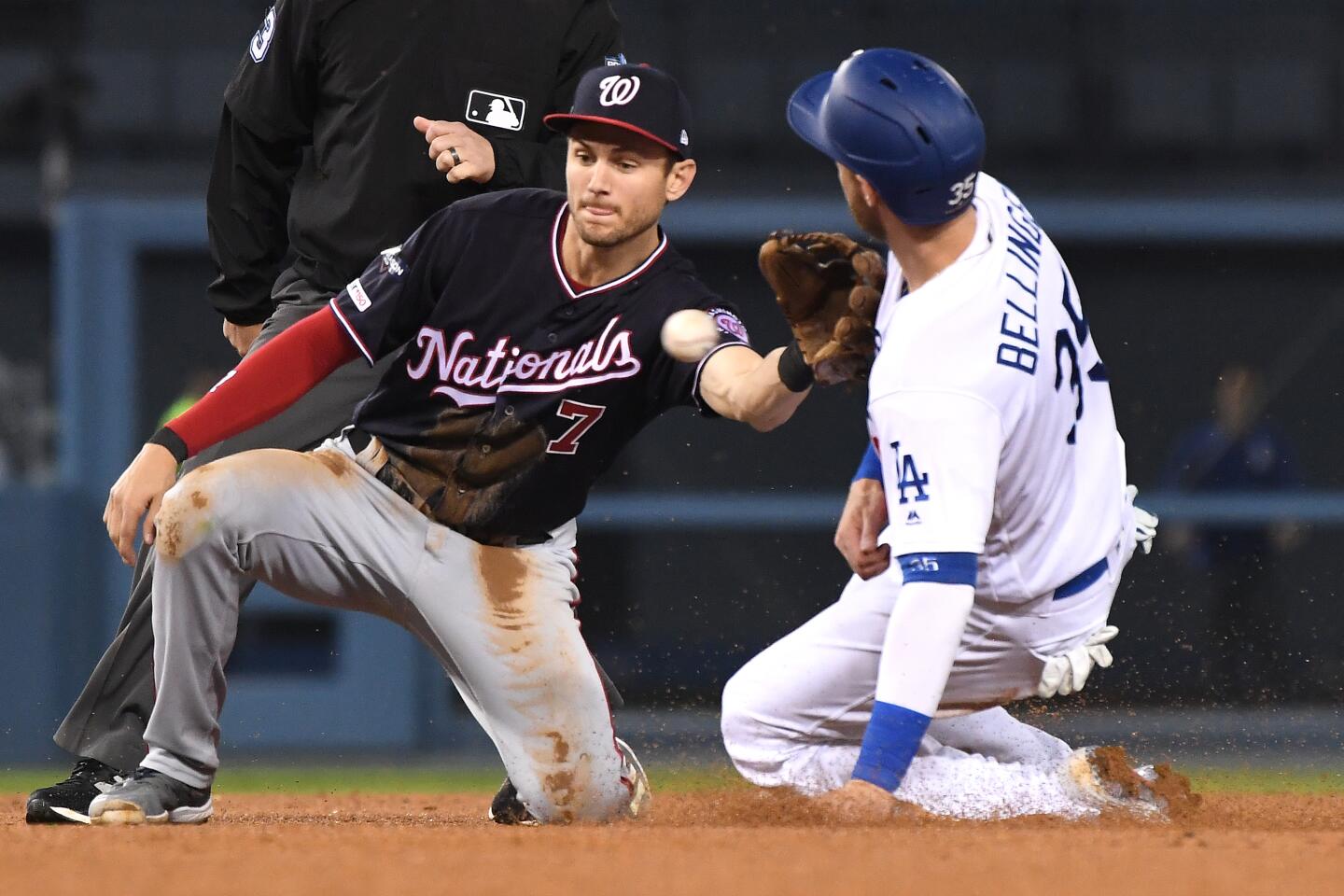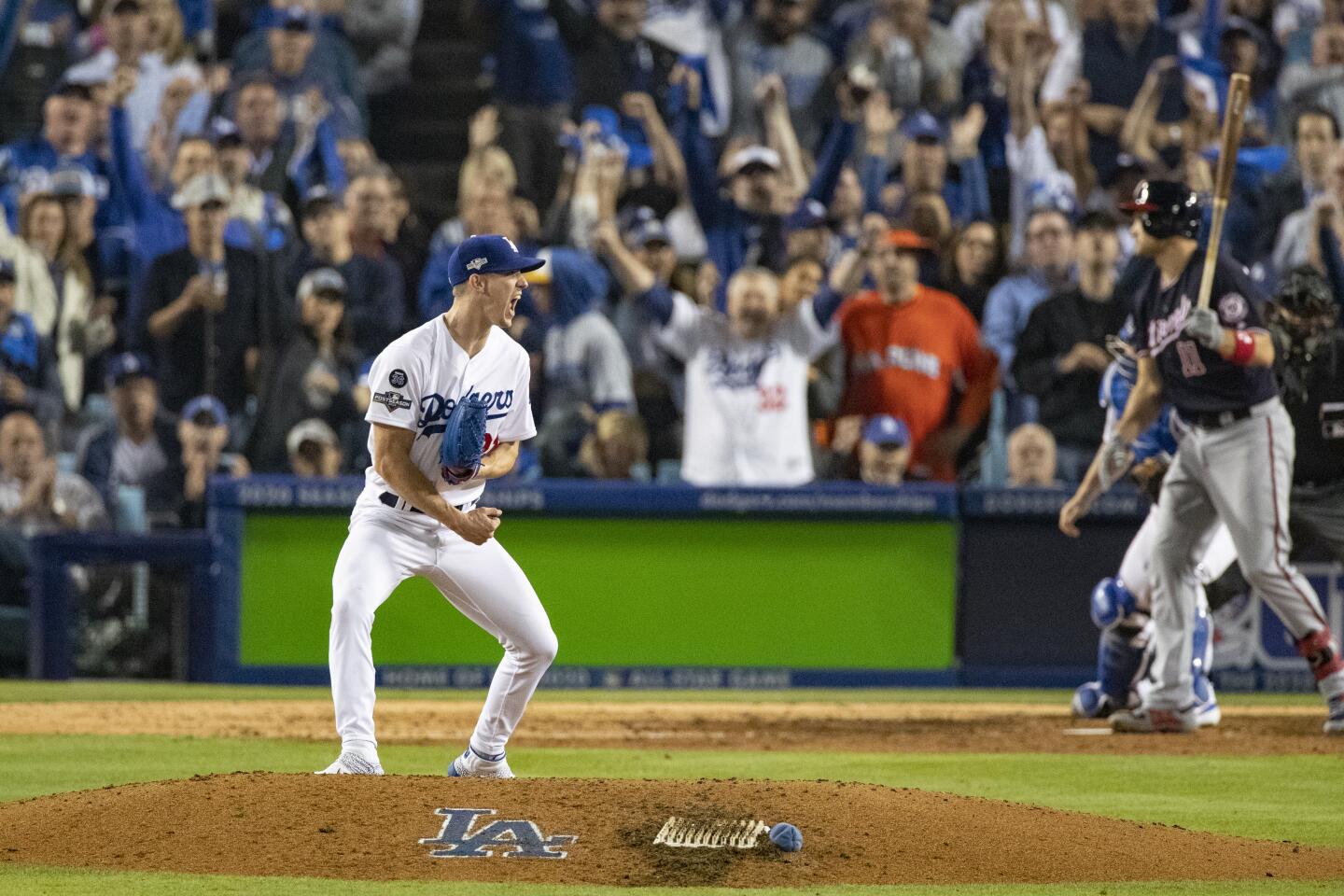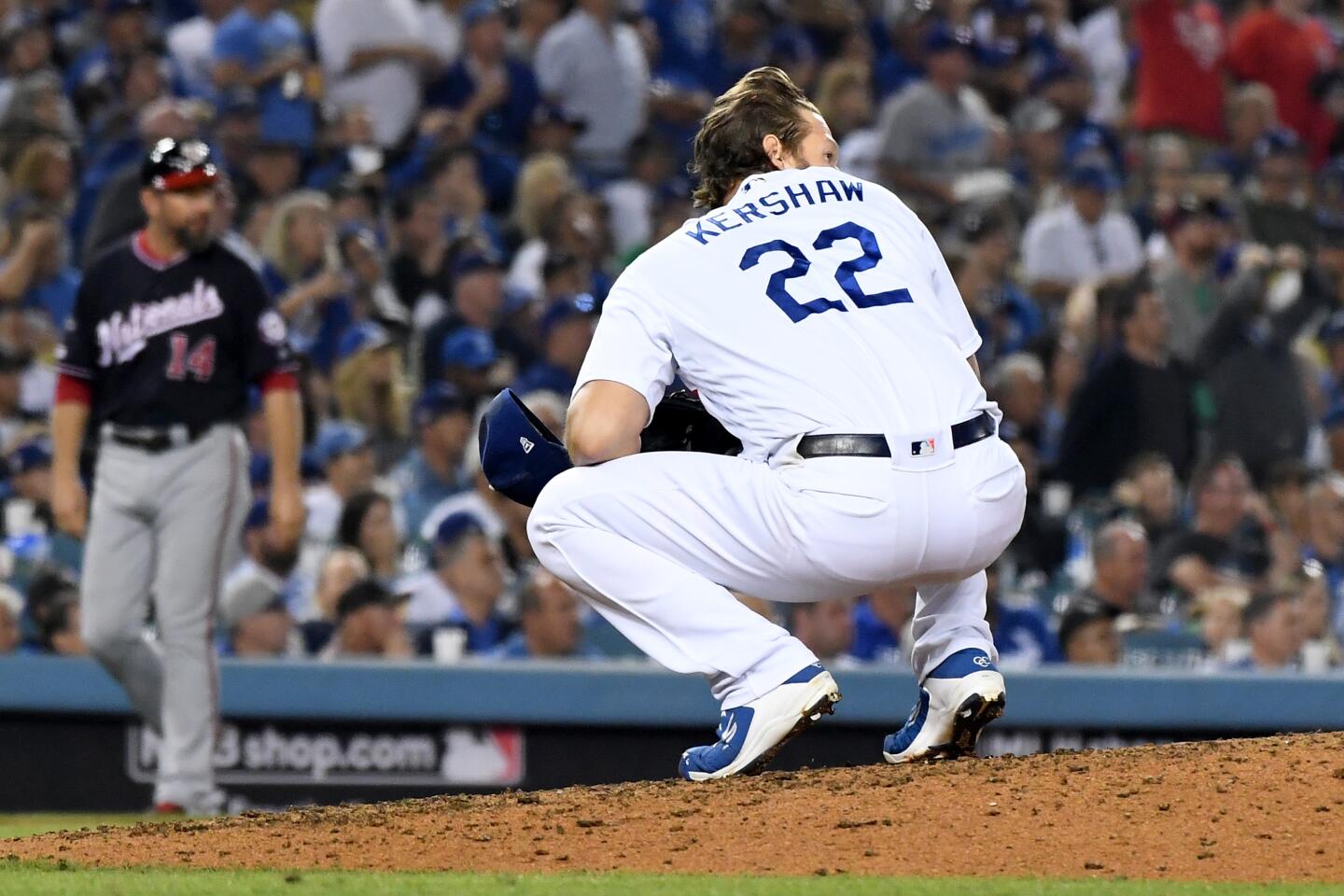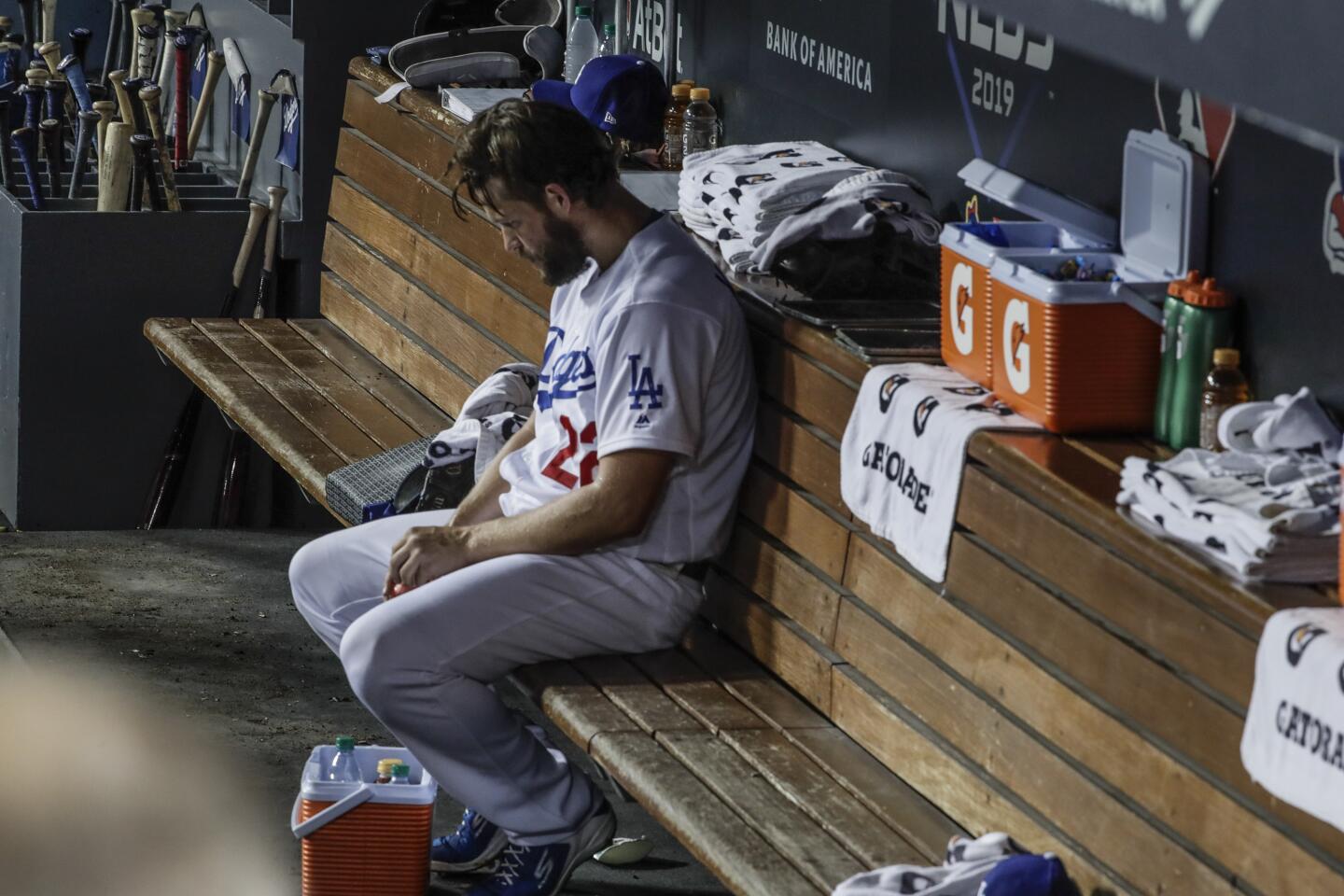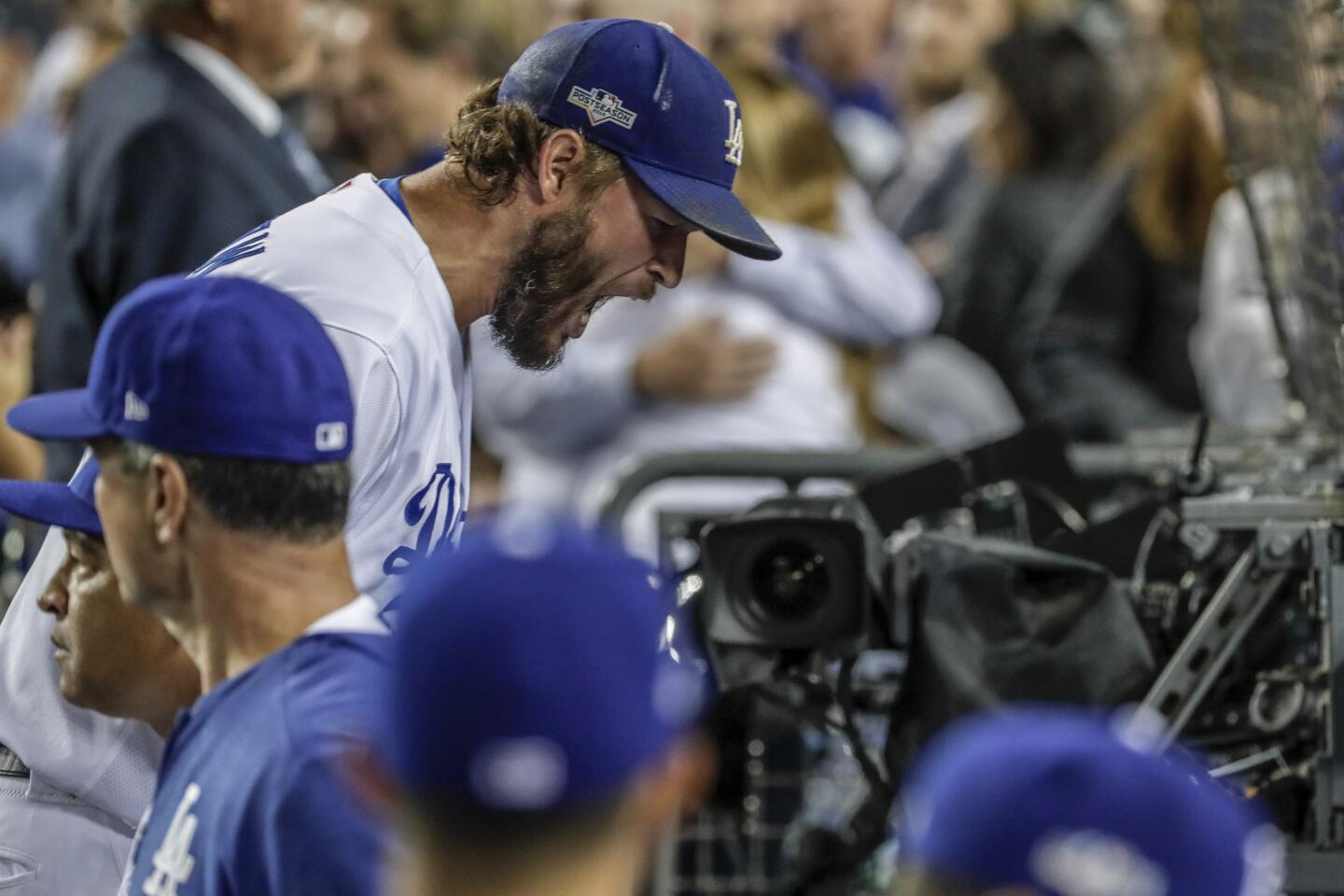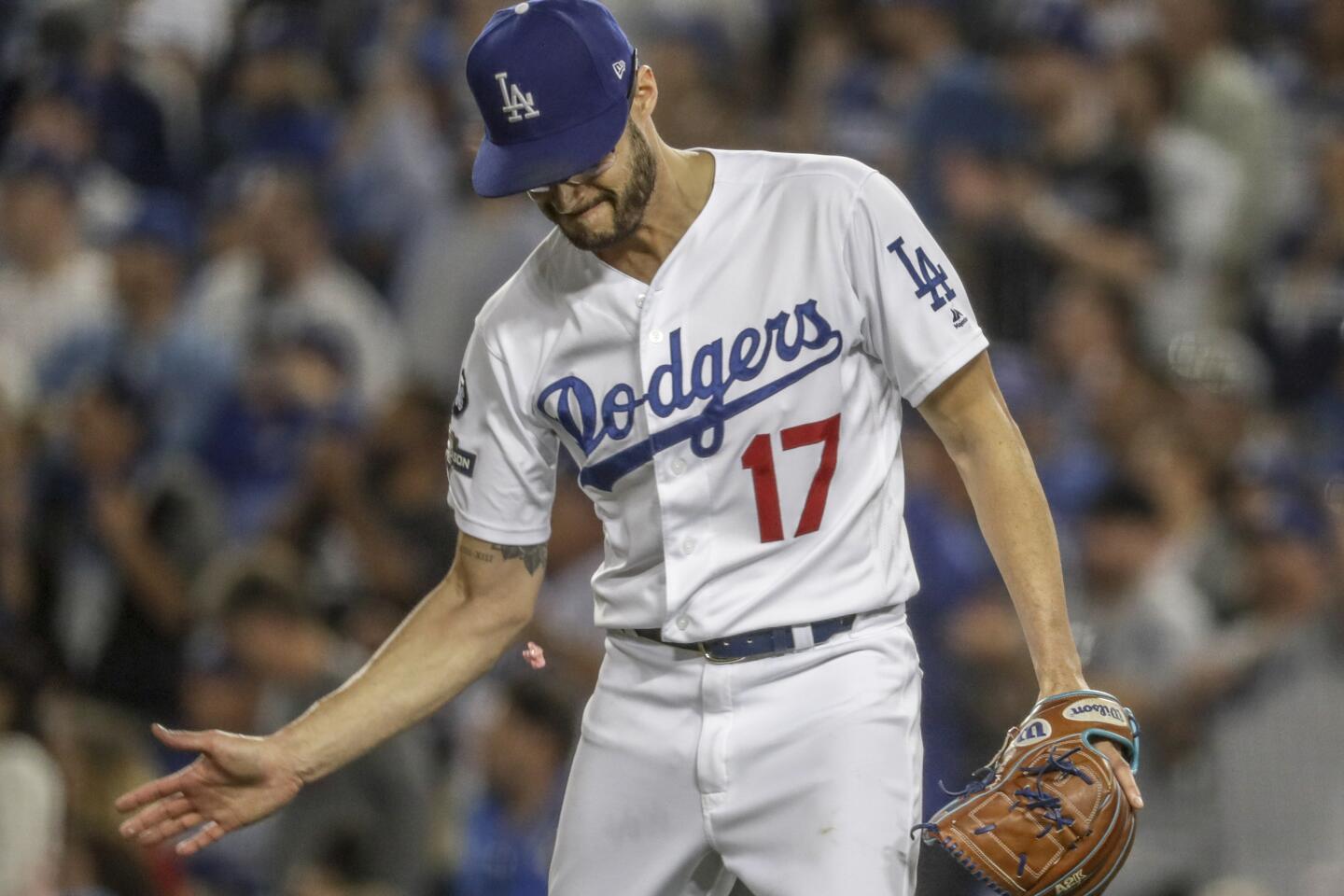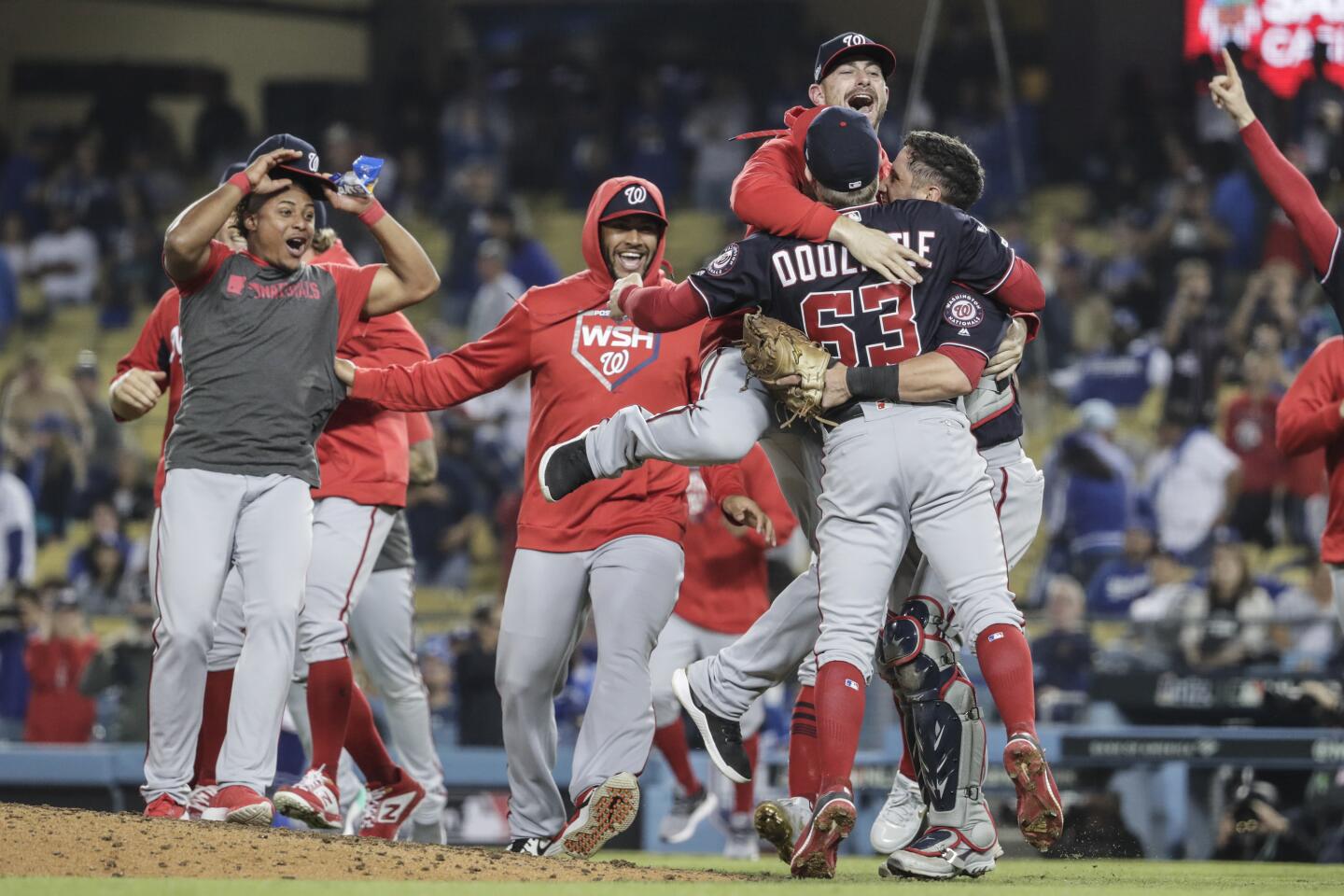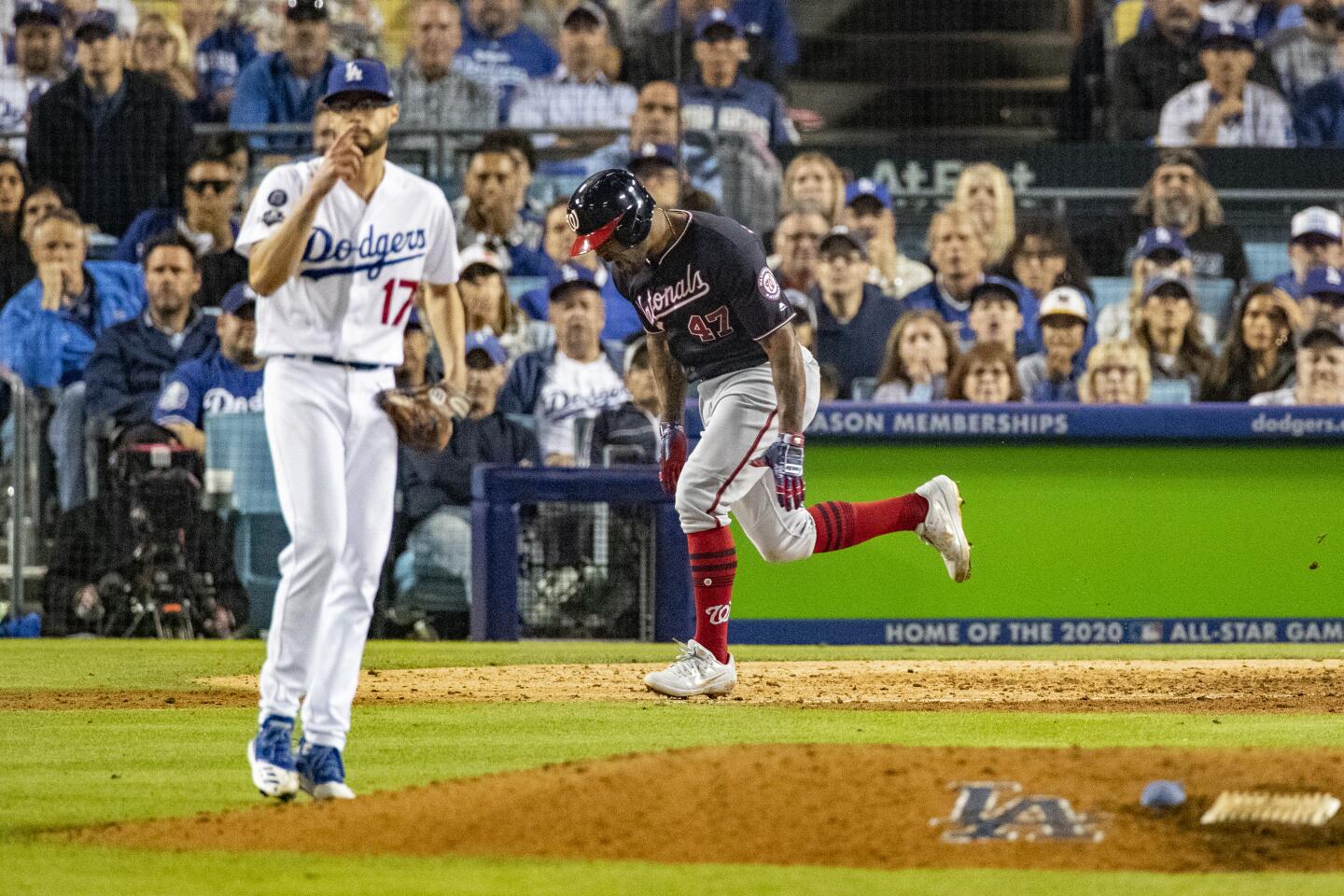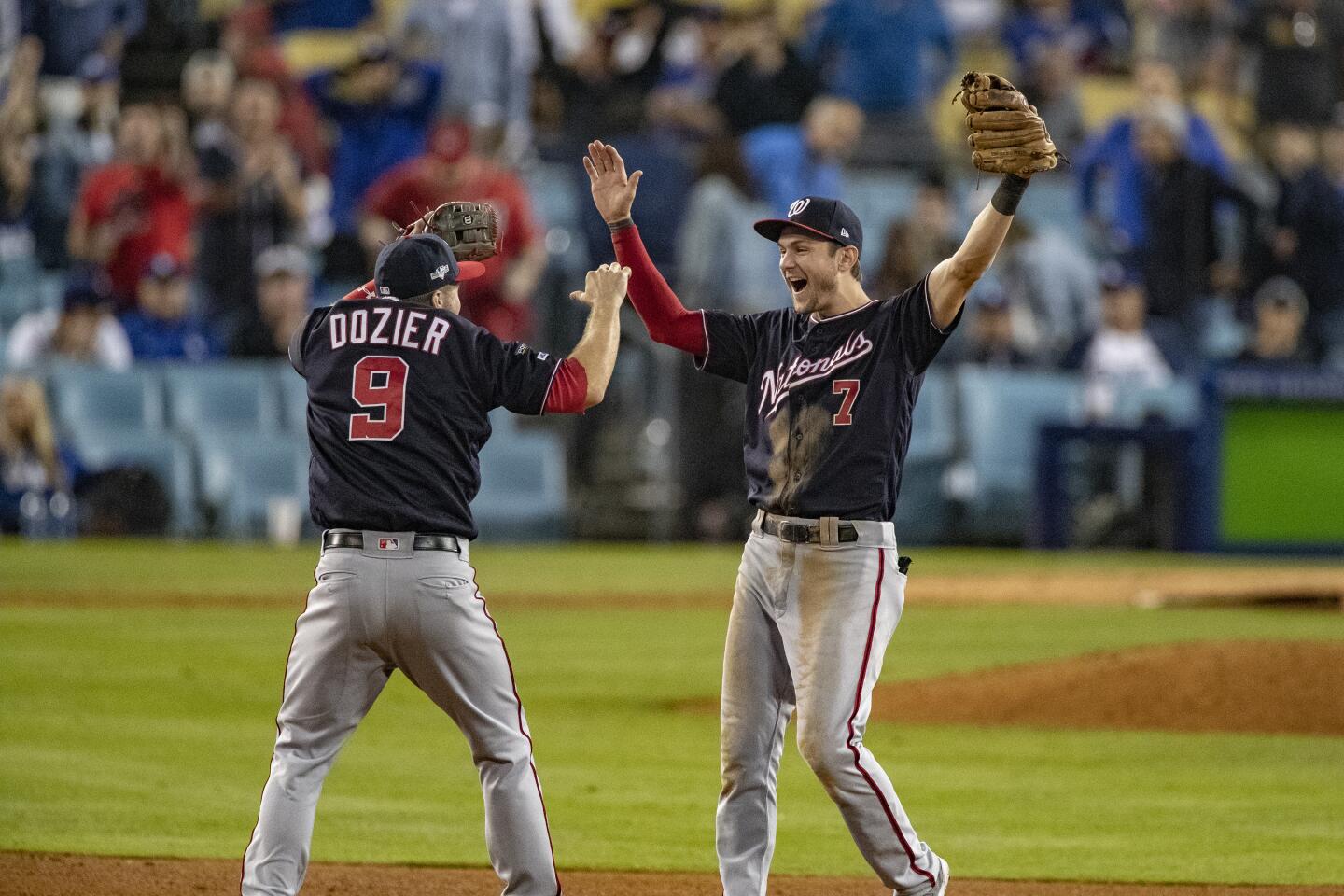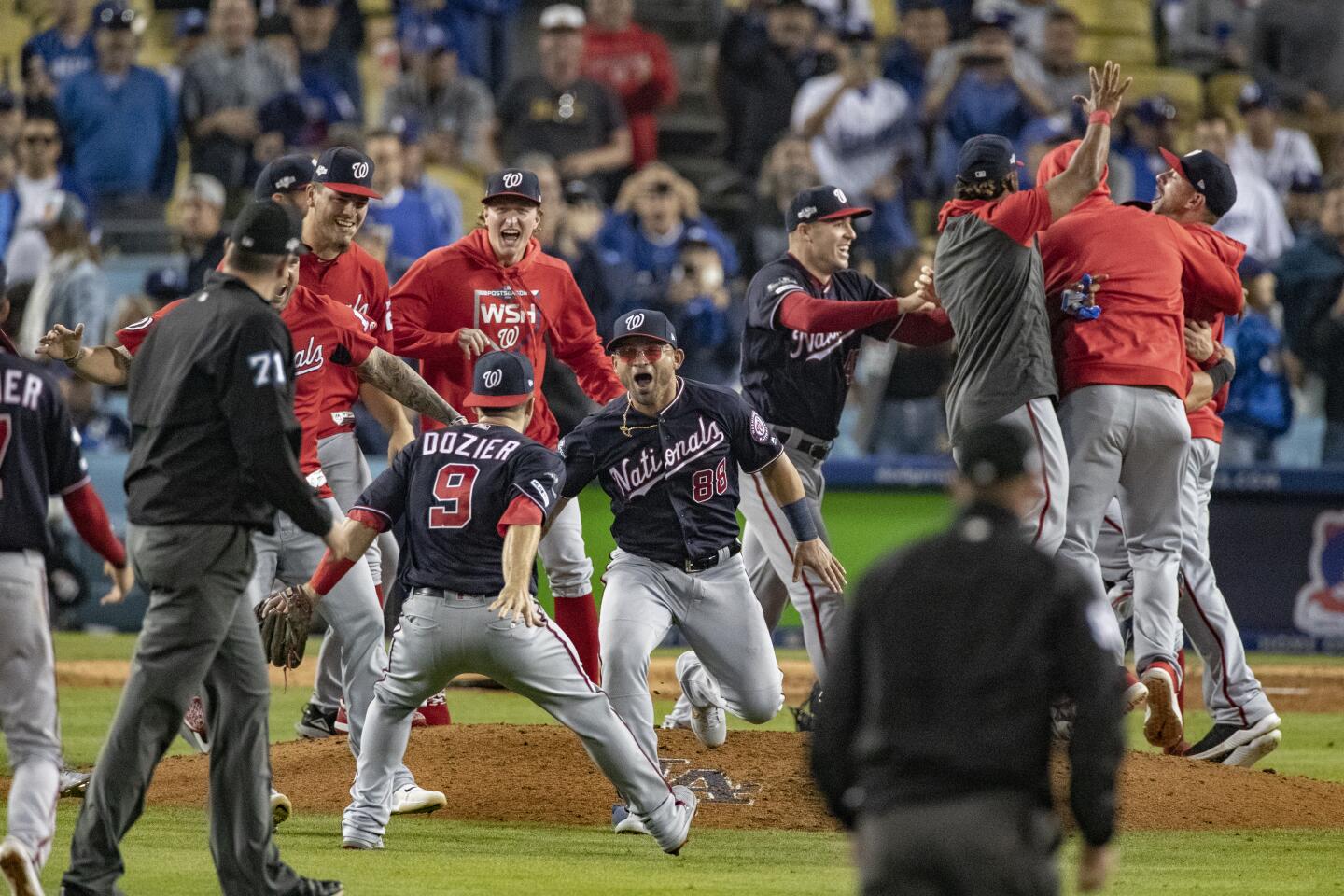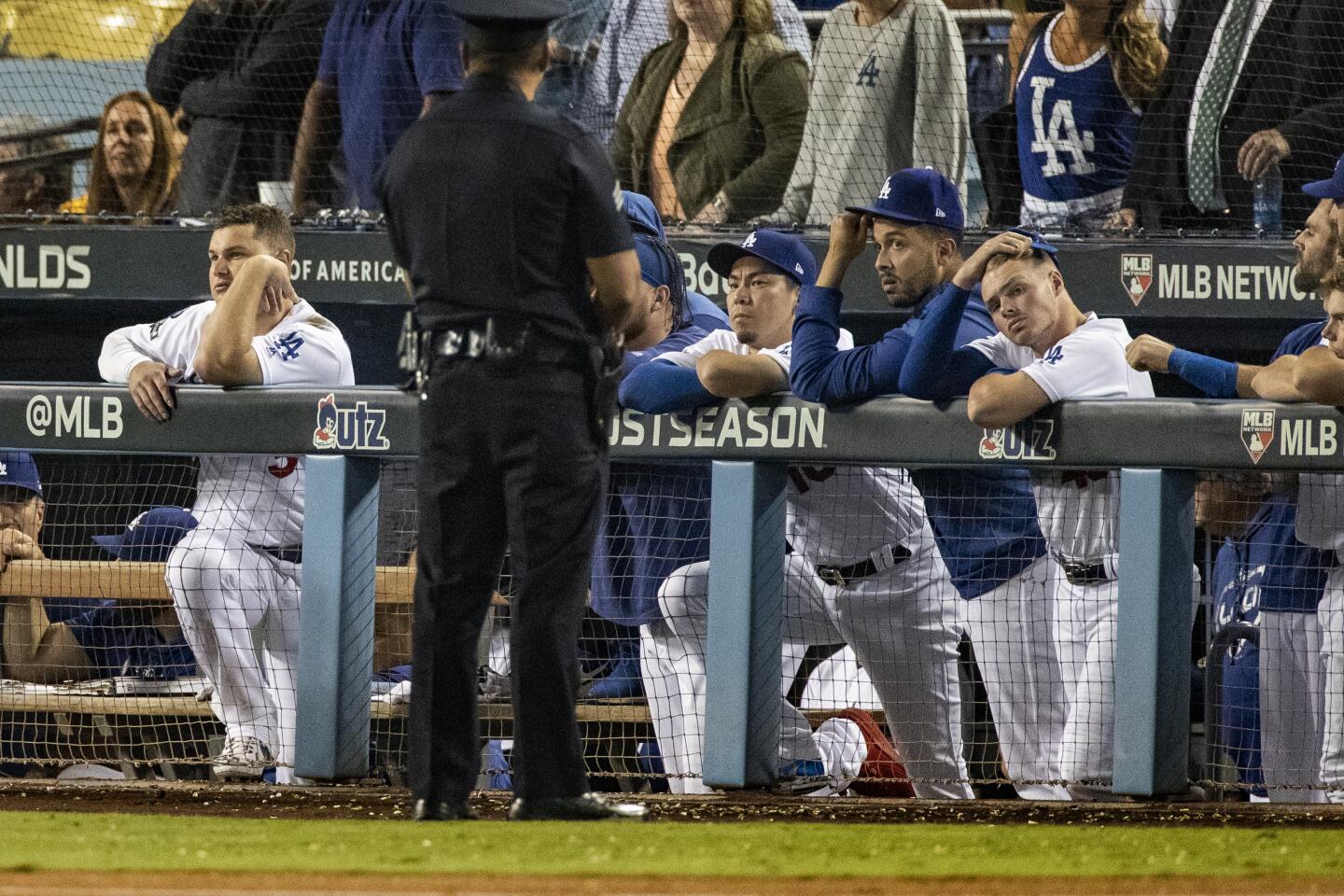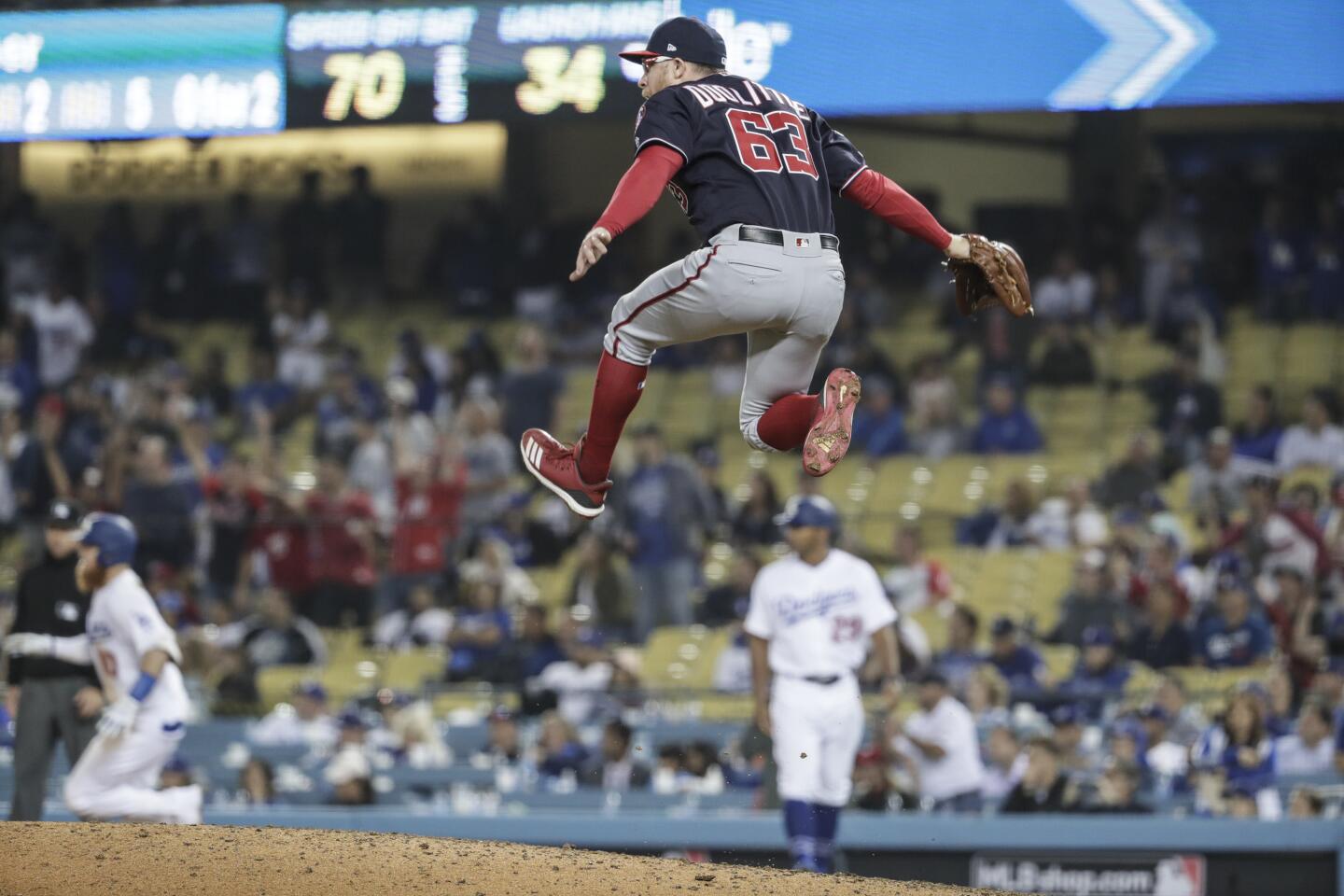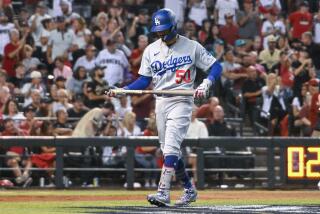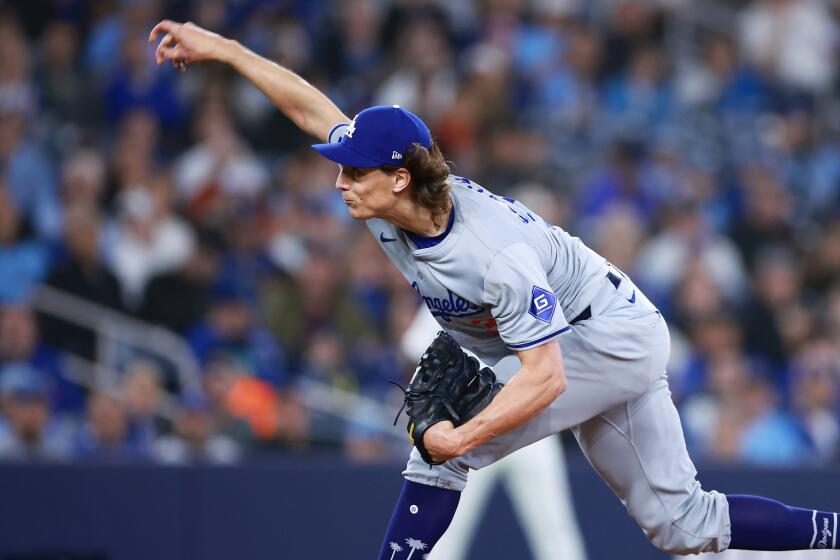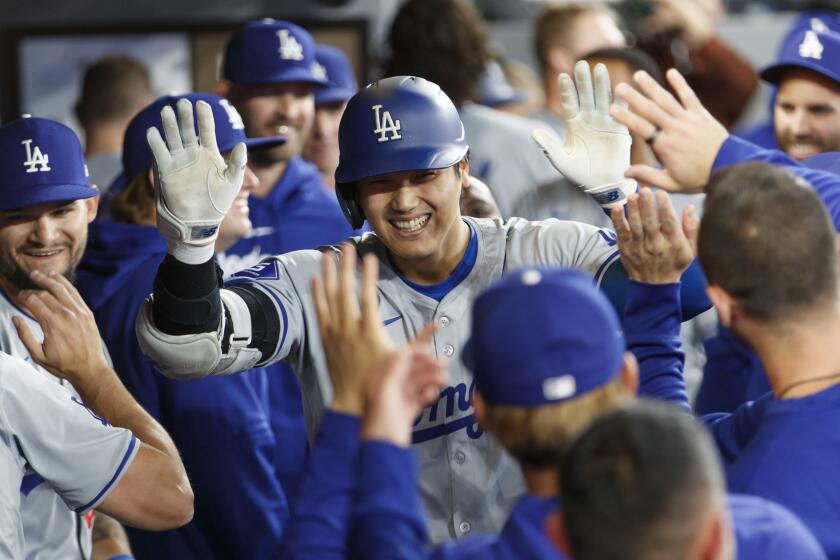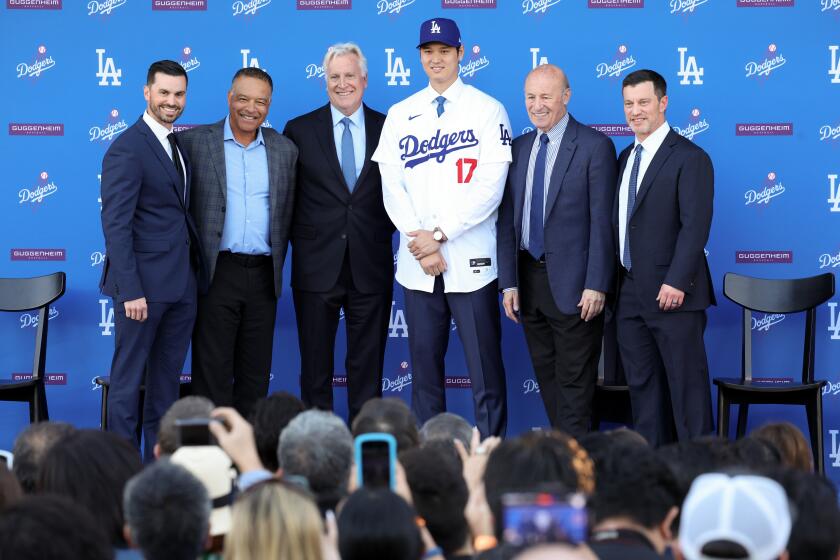Column: Clayton Kershaw suffers another crushing postseason blow
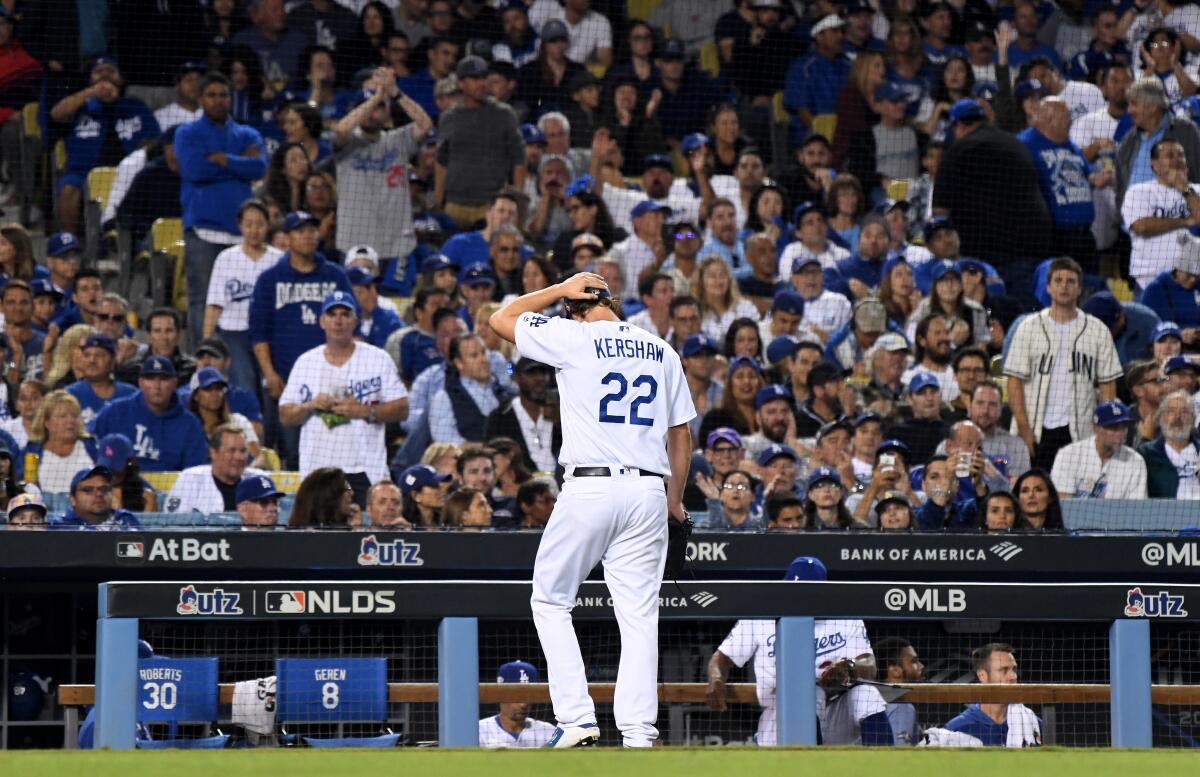
October was here and the Dodgers choked.
Again.
Ahead of the Washington Nationals by two runs and only six outs from victory in the final game of their best-of-five National League Division Series, the Dodgers found a way to lose on Wednesday night.
The resulting anguish was intensely familiar for a city that is more than three decades removed from its last World Series championship. Baseball’s postseason has become synonymous with failure in these parts.
One particular detail of the defeat was especially recognizable. Costing the Dodgers their two-run advantage was their most accomplished, most respected and hardest-working player.
The player was Clayton Kershaw.
Again.
Clayton Kershaw gives up back-to-back home runs before Joe Kelly surrenders a grand slam in the 10th inning of a 7-3 NLDS Game 5 loss to the Washington Nationals.
“Everything people say is true right now about postseason,” Kershaw said. “I understand that.”
The Dodgers’ lead vanished over successive sliders delivered by Kershaw in the eighth inning, one to Anthony Rendon that was whacked over the outfield wall and another to Juan Soto that met the same fate.
The 3-1 edge that Kershaw inherited from starter Walker Buehler was erased, setting up a go-ahead grand slam by Howie Kendrick in the 10th inning.
The Dodgers lost the game 7-3, and the series three games to two.
Kershaw was despondent.
“I let down the guys in the clubhouse,” he said. “That’s the hardest part every year. When you don’t win the last game of the season and you’re to blame for it, it’s not fun.”
He had already experienced multiple autumn heartbreaks as a starter. This time, he was crushed as a reliever.
Removed from the game after serving up the home run to Soto, Kershaw retreated to the bench. He sat alone, hunched over, occasionally running his hands through his hair.
Though Kershaw shouldered the blame, there were legitimate questions to be asked whether he was set up to fail by manager Dave Roberts.
Three years ago, at the same stage of the postseason, against the same opponents, Roberts managed his personal masterpiece. He used five relievers to cover the final 61/3 innings of that game, extending to Kenley Jansen for 22/3 innings and calling on Kershaw to record the last two outs.
“If I had to pick one game of managing in my brief time, that’s probably it, No. 1,” Roberts said this week.
The game Roberts managed Wednesday night belonged on the opposite end of the spectrum, as even moves that didn’t backfire could be second-guessed.
“If the blame falls on me, I have no problem with it,” Roberts said.
Roberts said before the game he would “ride” Buehler and he did. The greatest number of pitches Buehler had thrown in a game was 111. His pitch count was at 97 through the first six innings Wednesday, but Roberts nonetheless sent him back to the mound for the seventh inning.
The Dodgers were fortunate the Nationals didn’t further reduce their 3-1 lead in that inning, which Buehler started by beaning Kurt Suzuki. Buehler walked Trea Turner with two outs on his 117th pitch, prompting Roberts to summon Kershaw from the bullpen.
Catastrophic decisions by Dave Roberts to use Clayton Kershaw and Joe Kelly with the season at stake doomed the Dodgers to an almost unfathomable loss.
Five days removed from his start in Game 2, Kershaw temporarily preserved the two-run advantage with a three-pitch strikeout of the Nationals’ No. 2 batter, left-handed-hitting Adam Eaton.
He didn’t fare as well in the eighth inning.
His second pitch to Rendon was launched over the left-field wall. The Dodgers’ lead was down to 3-2.
Kershaw’s next pitch was blasted into the opposite set of stands by Soto, the left-handed-hitting 20-year-old prodigy. Dodger Stadium was suddenly silent. The score was tied.
Roberts defended his decision to have Kershaw pitch to the heart of the Nationals lineup instead of Kenta Maeda, his sharpest reliever. Maeda replaced Kershaw and struck out three consecutive batters. The Japanese right-hander pitched 42/3 innings in the series and didn’t give up a run.
“We wanted to keep Kenta away from Soto,” Roberts said. “You look at want Kenta’s done, he’s been a righty killer.”
Insisting that Kershaw was still one of the best pitchers in the game, Roberts said, “I’ll take Clayton any day in that situation.”
The sentiment was of no consolation to Kershaw.
“I had one job to do,” he said. “Just get three outs. Got one out and didn’t get the other two. Went over the fence and cost us the game right there. It’s a terrible feeling. No excuses. Just didn’t make pitches and guy hit it over the fence, twice.”
Asked how long it would take him to get over this setback, Kershaw replied, “I’ve had to do it so much. I don’t know. It might linger for a while. I might not get over it. I don’t know. But spring training is going to come, I have to be ready to pitch, do my job as best I can.”
He promised to do that.
“I’m not going to hang my head,” he said. “I’m going to be here. I’m going to continue to try to fight, continue to try to compete. I’m not going to shy away from it, continue to do it.”
In another year, he could get another chance. Only then, only after navigating a 162-game regular season and earning a place in the postseason, can he get the opportunity to avoid this all-too-familiar ending.

More to Read
Are you a true-blue fan?
Get our Dodgers Dugout newsletter for insights, news and much more.
You may occasionally receive promotional content from the Los Angeles Times.

